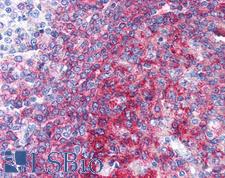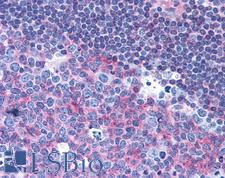Login
Registration enables users to use special features of this website, such as past
order histories, retained contact details for faster checkout, review submissions, and special promotions.
order histories, retained contact details for faster checkout, review submissions, and special promotions.
Forgot password?
Registration enables users to use special features of this website, such as past
order histories, retained contact details for faster checkout, review submissions, and special promotions.
order histories, retained contact details for faster checkout, review submissions, and special promotions.
Quick Order
Products
Antibodies
ELISA and Assay Kits
Research Areas
Infectious Disease
Resources
Purchasing
Reference Material
Contact Us
Location
Corporate Headquarters
Vector Laboratories, Inc.
6737 Mowry Ave
Newark, CA 94560
United States
Telephone Numbers
Customer Service: (800) 227-6666 / (650) 697-3600
Contact Us
Additional Contact Details
Login
Registration enables users to use special features of this website, such as past
order histories, retained contact details for faster checkout, review submissions, and special promotions.
order histories, retained contact details for faster checkout, review submissions, and special promotions.
Forgot password?
Registration enables users to use special features of this website, such as past
order histories, retained contact details for faster checkout, review submissions, and special promotions.
order histories, retained contact details for faster checkout, review submissions, and special promotions.
Quick Order
PathPlusTM CD40 Antibodies
CD40 is a costimulatory protein of the TNF-receptor superfamily that is expressed on the membrane of antigen presenting cells and is involved in their activation. It is a vital regulator of numerous inflammatory and immune responses and functions in germinal center formation and memory B cell development. It is also required for amyloid-beta-induced microglial activation and is thought to be involved in the pathogenesis of Alzheimer’s disease. Absence of CD40 leads to Hyper-IgM syndrome type 3. In immunohistochemistry of normal tissue, CD40 has membranous and extracellular positivity in a wide range of cell types, including: B cells, dendritic cells, mast cells, monocytes, platelets, macrophages, endothelial cells, epithelial cells, fibroblasts, keratinocytes, Langerhans cells, nevus cells, pancreatic islet cells, prostatic acini, astrocytes and microglial cells.
References: Immunology. 16: 111–35, PMID: 9597126; CNS Neurol Disord Drug Targets. 2010 Apr;9(2):149-55, PMID: 20205645; J Neuroinflammation. 2006 Feb 24;3:3, PMID: 16504112; Diabetologia. 2005 Feb;48(2):268-76, PMID: 15690148
2 PathPlusTM Antibodies


☰ Filters
Products
Antibodies
(2)
Type
Primary
(2)
Target
CD40
(2)
Reactivity
Human
(2)
Monkey
(1)
Application
IHC
(2)
IHC-Fr
(1)
IHC-P
(2)
Flo
(2)
IP
(1)
Host
mouse
(2)
Product Group
PathPlus Neuro
(2)
Isotype
IgG1,k
(1)
IgG2a
(1)
Clonality
monoclonal mc
(2)
Clone
HB14
(1)
LOB7/6
(1)
Format
Unconjugated
(2)
Publications
Yes
(2)

Neuroscience
CD40 Mouse anti-Human Monoclonal (LOB7/6) Antibody
Human
Flo, IHC, IHC-Fr, IHC-P, IP
Unconjugated
50 µg/$460

Neuroscience
CD40 Mouse anti-Human Monoclonal (HB14) Antibody
Human, Monkey
Flo, IHC, IHC-P
Unconjugated
50 µg/$460
Viewing 1-2
of 2
product results











